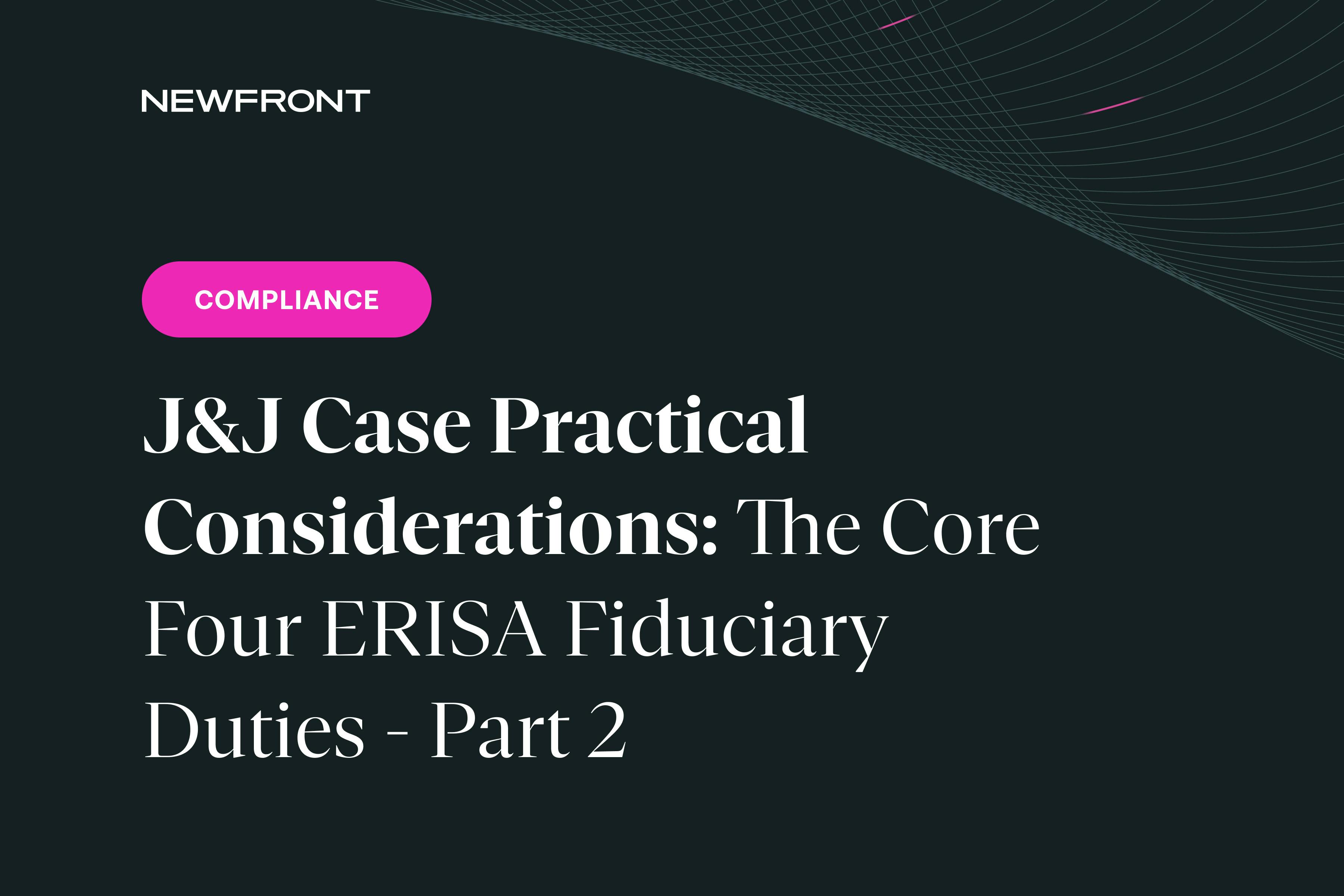Medical Coverage for Summer Interns
By Brian Gilmore | Published May 12, 2017
The Summer Interns are Coming!
What are the ACA requirements for offering medical coverage to summer interns?
Compliance Team Answer:
Interns—General Rule
The general rule of thumb is that there are no potential pay or play penalties if a full-time employee does not remain employed to the first day of a fourth full calendar month of employment. This is referred to as the “limited non-assessment period.” In most cases, the company will need to offer medical coverage effective no later than the first day of the fourth full calendar month of employment (if the intern remains employed that long) to avoid potential pay or play penalties.
For example, if you hired an intern mid-May, there would be no potential pay or play liability if the intern were terminated on or before August 30.
September 1 would be the first day of the fourth full calendar month. Any interns still employed into that fourth full calendar month would need to be offered coverage effective no later than September 1 to avoid potential pay or play penalties. The actual offer should be made at least a week or two in advance of that September 1 effective date (i.e., in mid-to-late August) to ensure the intern has an effective opportunity to enroll prior to the September 1 effective date.
The first day of the fourth full calendar month rule requirement is merely an outer limit (i.e., the maximum limited non-assessment period). In some cases, employers will have a policy to offer coverage to full-time interns at the point of hire (subject to the standard waiting period) to avoid the issue entirely.
In any case, the company needs to have a consistent policy across-the-board for all full-time interns. There cannot be a case-by-case basis determination as to whether the full-time intern must wait until the first day of the fourth full calendar month to receive an offer of coverage.
(Note: There is an exception to this general rule that in most cases permits employers to exclude summer interns from eligibility for over a year without any potential pay or play penalties. This exception applies only for summer interns who can be categorized as seasonal employees, and only where the employer is utilizing the look-back measurement method to determine employees’ full-time status (it does not apply under the monthly measurement method.)
Here’s a complete summary of this summer intern offer of coverage issue with lots more detail: https://www.newfront.com/blog/medical-coverage-summer-interns-2-2
Limiting Eligibility to Specific Plan Options: Permitted
First of all, keep in mind that the ACA pay or play rules apply only to the major medical. Therefore, the company may limit the benefit offering for interns to medical only.
With respect to which medical plan options to offer, there currently are no nondiscrimination rules in effect governing eligibility for fully insured medical plans. The ACA added new fully insured nondiscrimination rules, however those rules are on indefinite hiatus until the departments issue regulations.
This means that for the time being, the company could limit the medical offering for interns to only one or more of the total number of plan options available under the plan to regular full-time employees.
Charging Different Rates for Interns: Not Permitted
In general, employers will run into Section 125 nondiscrimination issues where they charge the highly compensated participants less for the same plan option than those who are not highly compensated. This is because employee pre-tax contributions for coverage are governed by Section 125 of the Internal Revenue Code.
The Section 125 nondiscrimination rules are designed to (among other things) make sure that contributions and benefits are available on a nondiscriminatory basis, and that highly compensated participants (HCPs) do not select more nontaxable benefits than non-HCPs do. An HCP is generally defined as an officer, 5% shareholder, or employee earning more than $120,000 in the prior year.
The Section 125 rules require that employers provide a “uniform election with respect to employer contributions.” A contribution structure that charges more to certain non-HCPs for the same benefit (whether for employee or dependent coverage) does not provide a “uniform election with respect to employer contributions.” This means that all full-time non-HCP employees eligible for the same plan option as an HCP must be offered at least the same employer contribution amount that is available to the HCPs for that plan.
If the IRS were to audit the company’s Section 125 cafeteria plan and find the contribution structure to be discriminatory, HCPs would be taxed on all contributions for coverage. For example, an HCP who paid $1,500/month for family coverage would retroactively have those contributions re-characterized as taxable—within the three-year statute of limitations period.
Therefore, the company will need to provide the same employer contribution amount for any plan options made available for interns to avoid violating the Section 125 nondiscrimination rules governing contributions.
ACA Pay or Play “A Penalty” Threshold Increased to 95%
The pay or play rules provide that the large “A Penalty” is triggered where an employer fails to offer coverage to substantially all of its (ACA-defined) full-time employees. In 2015, there was a transition rule providing that substantially all meant offering coverage to at least 70% of full-time employees.
In 2016 and going forward, this “substantially all” standard has increased to 95%. This means that the company will need to ensure it is offering coverage in all calendar months to at least 95% of its full-time employees to avoid the large A penalty.
This 95% threshold includes any full-time intern or other contingent workforce type (e.g., temps, workers through an outside staffing firm) who are employed beyond the limited non-assessment period (generally to the first day of a fourth full calendar month, as described above). The 2017 annualized A Penalty amount is $2,260 multiplied by all full-time employees (minus the first 30 full-time employees).

Brian Gilmore
Lead Benefits Counsel, VP, Newfront
Brian Gilmore is the Lead Benefits Counsel at Newfront. He assists clients on a wide variety of employee benefits compliance issues. The primary areas of his practice include ERISA, ACA, COBRA, HIPAA, Section 125 Cafeteria Plans, and 401(k) plans. Brian also presents regularly at trade events and in webinars on current hot topics in employee benefits law.
Connect on LinkedIn

